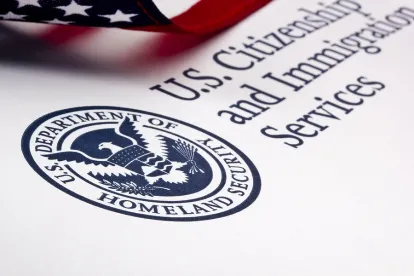On January 30, 2020, U.S. Citizenship and Immigration Services (USCIS) announced that it will begin implementing the new public charge regulations on February 24, 2020. The regulations broadly expand the list of public benefits that can be considered, as well as the discretion given to immigration officers when deciding whether someone is “more likely than not” to become a public charge.
The rule was originally scheduled to take effect on October 15, 2019 but was blocked by nationwide injunctions filed by several federal judges across the country. The Supreme Court of the United States recently ruled in favor of the Trump administration to allow implementation of the regulations while legal challenges play out in the lower courts. The public charge rule will not be applied in the State of Illinois where a statewide injunction is still in place.
The public charge rule applies to certain adjustment of status (also known as green cards) applicants, as well as nonimmigrants seeking to change their status or extend their stay. USCIS will apply the new standards to applications or petitions that are postmarked on or after February 24, 2020.
USCIS will release new and updated application forms the week of February 3, 2020, giving employers some time to adjust filing practices. Based on drafts released in October, the forms are expected to require significant amounts of personal information and supporting documentation including a credit report. In conjunction with adjustment of status filings, USCIS will also require an additional form, the I-944, Declaration of Self-Sufficiency.
Summary of Key Changes
Some of the key changes included in the new public charge regulations include the following.
Definition of Public Charge. The regulations define a “public charge” as an individual who receives one or more “public benefits” for more than 12 months in the aggregate within any 36-month period. Under the rule, receipt of two benefits in the same month will count as two months. This definition will apply only to those public benefits received on or after February 24, 2020.
Public Benefits. USCIS has expanded the list of benefits that are considered “public benefits” to include all of the following:
-
Supplemental Security Income (SSI)
-
Temporary Assistance for Needy Families (TANF)
-
Any federal, state, local or tribal cash assistance for income maintenance
-
Medicaid (with limited exceptions)
-
Supplemental Nutrition Assistance Program (SNAP, formerly known as food stamps)
-
Any benefits related to institutionalization for long-term care at government expense
-
Section 8 Housing Choice Voucher Program and Rental Assistance Program
-
Public Housing
Weighted Factors. USCIS will analyze each applicant based on the totality of the circumstances. Under the regulations, immigration officers are authorized to weigh certain factors more heavily when deciding whether an individual is likely to become a public charge. Examples of negatively weighted factors include poor health, lack of private health insurance, low credit score, debt, inability to speak English, and lack of education and/or work history. USCIS will heavily weigh an income of at least 250 percent of the federal poverty guidelines for the individual’s household size as a positive factor.
Form I-944, Declaration of Self-Sufficiency. USCIS will require Form I-944 in addition to an Affidavit of Support for adjustment of status applicants. Draft versions of the form have included questions and require the submission of documentation related to household income and assets, debts and liabilities, credit history, use of public benefits, education level, employment history, health insurance, etc.
Public Charge Bond. USCIS may allow individuals to post a public charge bond if the individual is otherwise admissible.
Nonimmigrants. Nonimmigrants seeking to change their status or extend their stays will be required to prove that they have not received one or more public benefits for more than 12 months in the aggregate within any 36-month period since obtaining the nonimmigrant status that they seek to change or extend. This will only apply to public benefits received on or after February 24, 2020.





 />i
/>i

